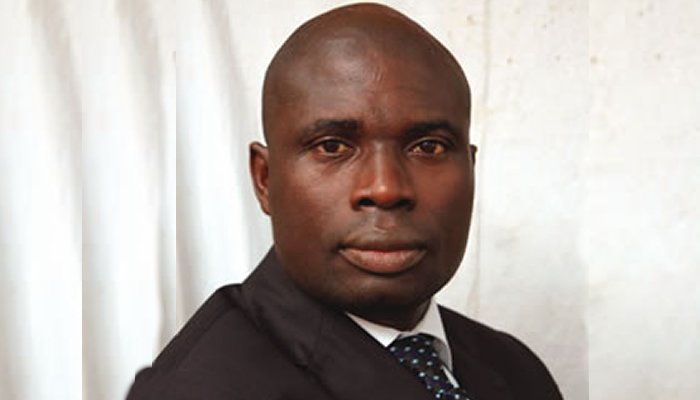
Any expectation of an outcome other than the one from the recent All Progressives Congress presidential primary is a dream, a fantasy. Why? The realities in our political landscape clearly tell what is possible and what is not, except one still chooses to dream instead. But it’s good to dream and fantasise sometimes. The challenge is that many of us don’t learn to separate dreams from reality and align ourselves with the reality. Except for contenders who imagined they would be ‘anointed’, it was a dream to think the outcome of the APC primary in particular would be different. The enthusiasm displayed by all is commendable though. But I did state in my past intervention that this would end in the manner it did.
I shall be looking at a few of those who contested against the winner, Asiwaju Bola Tinubu, in due course. It’s to help readers see a few of the factors that, for me, perennially inform the realities in Nigerian politics. In recent past, I called for a free and fair primary because I knew it was how the realities of the nation’s politics would be made clear to whoever wasn’t aware of them before now. Now I proceed to explain what I meant by those realities. Note that what I state here is a perspective, another contribution to other views in the public space. I focus first on what contenders against Tinubu did, what they didn’t do and where they stand in Nigerian politics in a contest in which Tinubu is present.
Now, I focus mainly on the Vice President, Prof. Yemi Osinbajo, but my explanation applies to some of the other contenders as well. We know democracy is about the numbers. Mass mobilisation, and mass contact, are needed to get the numbers and, in the Nigerian context, any means other than connecting with grassroots mobilisers isn’t likely to work. Note that I don’t refer to connecting with people at the grassroots, I refer to connecting with those who mobilise people at the grassroots; those who lead and their followers follow. It’s how our democracy still functions. It’s our reality. Having come into national politics in 2015 for the first time, Osinbajo doesn’t have such political connections across the country. He didn’t seem to have made the connections until he declared his interest in the presidency. That’s too late.
Why is such connection important? I had covered election campaigns and elections proper in the North-West and North-East of Nigeria. Sometimes we’re on the move across remote villages between 4pm and 5am, visiting the grassroots people in them who actually vote. Someone usually leads them, mobilise them (sometimes one-on-one) and no matter the political party the person or persons belong to the followers follow. In northern states especially, where any potential winner in the APC primary needed to get most of the numbers, Osinbajo clearly didn’t connect with those who led people at the grassroots which in this case were at the local government level. Meanwhile, LGAs were where delegates to the latest primaries were elected. It was in the news, after the opposition Peoples Democratic Party presidential primary in particular, that one delegate returned to his locality, invited his people and displayed N13 million cash as the amount he made as a delegate. He shared the money among them. These leaders at the grassroots, and those who are leaders over them such as senators, Rep members and party officials, did Osinbajo fully connect with them in the less than four months he spent campaigning?
Besides, some might have based Osinbajo’s chances on the visibility he enjoys; I mean the visibility that his post as VP gives him in the last eight years. Is that enough for him to connect to those who lead at the grassroots in the North, who were the deciders of this last primary? It’s an important question for some reasons. One, can the political visibility Osinbajo has be compared with that of Tinubu? One would understand what I’m driving at if one considers the following: As a senator in 1992, Tinubu’s name was one many northerners would have heard. His colleagues in that National Assembly would still be mentioning him in their states in the hearing of people when campaign before the last primary began. Also, in the days of the National Democratic Coalition, Tinubu’s name was known from the South to the North. Did Osinbajo have all of that head start?
Moreover, when he was Lagos State governor, Tinubu’s constant face-off with the then President, Olusegun Obasanjo, made him a household name across the country. He won a second term in 2003 at a time all the other Alliance for Democracy governors in the South-West lost to PDP. That also made his name memorable for northerners who were mostly for the PDP at the time. Then there was the manner Tinubu’s name constantly came up in the days of the formation of APC. Northerners recall till today that it was because of the Tinubu-led South-West that then Major General Muhammadu Buhari (retd.) had enough votes in the 2015 presidential election. The image of a politician who helped Buhari win hasn’t left the minds of northerners and for this, they still praise Tinubu in their radio and television programmes.
The foregoing is a broad outline of a visibility comparison, against the backdrop of APC primary, where Osinbajo is concerned. In case anyone insists on the power the visibility of the post of a VP confers on him, then they need to note what northerners call a VP—maitemake sugaban kasa (Helper of the President). A VP position is no more than that in the eyes of a northerner. But can the socio-economic programmes that Osinbajo promotes under the current regime be placed to his credit in a way that gives him better visibility than Tinubu in the consciousness of northerners? No. For over the years, Tinubu has become a national institution, a political icon, in the minds of northerners. Did Osinbajo achieve the same status in seven years as VP?
There’s as well the manner Osinbajo communicates. The reality is that most Nigerians who devotedly vote aren’t mature for his style, so he doesn’t connect on that front too. Comparatively, Tinubu speaks with less rapidity in a manner any segment of the Nigerian society can follow. One would note he communicates simply. Short simple sentences with pauses that can help anyone follow what he’s saying. Osinbajo on his part speaks the language of the highly educated, as seen at the time he officially declared interest in the presidency, not that of the masses.
Would anyone argue that the outcome would have been different for Osinbajo if Tinubu wasn’t in the race at all? Even such conjecture isn’t realistic considering that the VP didn’t come second; he came third behind the former Minister of Transportation, Chibuike Amaechi. There are a few reasons this could only be the case. Of course, Amaechi was the most visible of the aspirants from the South-South; no major contenders from there to share the votes with him as happened to Osinbajo in the South-West. That’s apart from other factors that see Amaechi given traditional title in the North, a positive factor for him in a race where aspirants of northern origin aren’t many.
But there’s yet the other issue, which made it possible for Amaechi to beat the VP to the finishing line. This is an angle I shall return to later in relation to Tinubu’s victory. For now, I state the following: The Nigerian political landscape is mature for some things, it’s not for others. I’ve seen in action enough of the electorate and their mentality for me to state here that politics is local. You want the votes? Gather, speak, connect with those who really vote, those who lead them. Experienced politicians seize every opportunity to gather crowds, thereby showing off their popularity and intimidating opponents even. Amaechi did when he formally declared his interest, gathering a crowd from across the country in a stadium. That provided attendees with truths, half-truths and myths about Amaechi to take back to their local governments where APC delegates were to be selected. However, when Osinbajo declared he made it a one-man show, alone, online; I shook my head at the mistake.
To be concluded.





